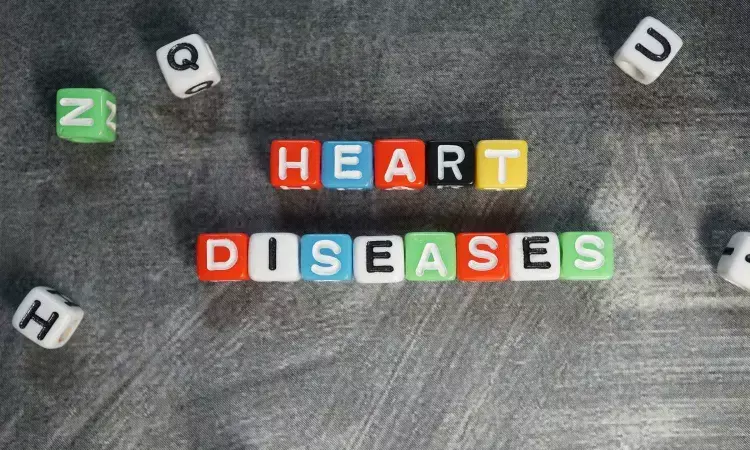- Home
- Medical news & Guidelines
- Anesthesiology
- Cardiology and CTVS
- Critical Care
- Dentistry
- Dermatology
- Diabetes and Endocrinology
- ENT
- Gastroenterology
- Medicine
- Nephrology
- Neurology
- Obstretics-Gynaecology
- Oncology
- Ophthalmology
- Orthopaedics
- Pediatrics-Neonatology
- Psychiatry
- Pulmonology
- Radiology
- Surgery
- Urology
- Laboratory Medicine
- Diet
- Nursing
- Paramedical
- Physiotherapy
- Health news
- Fact Check
- Bone Health Fact Check
- Brain Health Fact Check
- Cancer Related Fact Check
- Child Care Fact Check
- Dental and oral health fact check
- Diabetes and metabolic health fact check
- Diet and Nutrition Fact Check
- Eye and ENT Care Fact Check
- Fitness fact check
- Gut health fact check
- Heart health fact check
- Kidney health fact check
- Medical education fact check
- Men's health fact check
- Respiratory fact check
- Skin and hair care fact check
- Vaccine and Immunization fact check
- Women's health fact check
- AYUSH
- State News
- Andaman and Nicobar Islands
- Andhra Pradesh
- Arunachal Pradesh
- Assam
- Bihar
- Chandigarh
- Chattisgarh
- Dadra and Nagar Haveli
- Daman and Diu
- Delhi
- Goa
- Gujarat
- Haryana
- Himachal Pradesh
- Jammu & Kashmir
- Jharkhand
- Karnataka
- Kerala
- Ladakh
- Lakshadweep
- Madhya Pradesh
- Maharashtra
- Manipur
- Meghalaya
- Mizoram
- Nagaland
- Odisha
- Puducherry
- Punjab
- Rajasthan
- Sikkim
- Tamil Nadu
- Telangana
- Tripura
- Uttar Pradesh
- Uttrakhand
- West Bengal
- Medical Education
- Industry
Alirocumab reduces plaque load in patients with familial hypercholesterolemia

A new study published in Circulation, shows that in individuals with familial hypercholesterolemia who did not have clinical cardiac disease, a year of therapy with the PCSK9 inhibitor alirocumab (Repatha) resulted in substantial reductions in coronary plaque load and plaque stability.
A PCSK9 (proprotein convertase subtilisin/kexin type 9) inhibitor called alirocumab has not been studied for its impact on individuals with familial hypercholesterolemia's coronary plaque load. On the basis of a noninvasive investigation of coronary computed tomographic angiography, Leopoldo Pérez de Isla and colleagues conducted this research to evaluate changes in coronary plaque load and its features following therapy with alirocumab in asymptomatic patients with familial hypercholesterolemia undergoing optimal and stable treatment with maximal tolerated statin doses.
In patients with familial hypercholesterolemia who have not developed clinical atherosclerotic cardiovascular disease, this research is a phase IV, multicenter, open-label, single-arm clinical trial to evaluate changes in coronary plaque load and its features following 78 weeks of therapy with alirocumab. Both a baseline and follow-up coronary computed tomographic angiography were performed on participants. Together with high-intensity statin treatment, each patient got 150 mg of alirocumab subcutaneously every 14 days. The primary result was a change in coronary plaque burden and its features as measured and described by coronary computed tomographic angiography examination of atherosclerotic plaque throughout the coronary tree.
The key findings of this study were:
104 patients finished the research. The average age ranged from 46.2 to 59.4 years, or 53.3.
54 of these patients (51.9%) were female. At baseline, the median level of low-density lipoprotein cholesterol was 138.9 (117.5-175.3) mg/dL, and at follow-up, it was 45.0 (36.0-65.0) mg/dL (P 0.001).
After follow-up, the prevalence of coronary plaque decreased from 34.6% (32.5%-36.8%) at admission to 30.4% (27.4%-33.4%) (P 0.001).
The characteristics of coronary atherosclerosis underwent a significant change as well, with an increase in the percentage of calcified (+0.3%; P0.001) and primarily fibrous (+6.2%; P0.001) plaque and a decrease in the percentage of fibro-fatty (-3.9%; P0.001) and necrotic plaque (-0.6%; P0.001) plaque.
In these groups of patients with familial hypercholesterolemia without clinical atherosclerotic cardiovascular disease, treatment with alirocumab in addition to high-intensity statin therapy resulted in significant regression of coronary plaque burden and plaque stabilization on coronary computed tomographic angiography over 78 weeks. Results from the ODYSSEY OUTCOMES (Evaluation of Cardiovascular Outcomes Following an Acute Coronary Syndrome During Treatment With Alirocumab) study, known as ARCHITECT (Effect of Alirocumab on Atherosclerotic Plaque Volume, Architecture and Composition), may be related to and explained by these findings.
Reference:
Pérez de Isla, L., Díaz-Díaz, J. L., Romero, M. J., Muñiz-Grijalvo, O., Mediavilla, J. D., Argüeso, R., Sánchez Muñoz-Torrero, J. F., Rubio, P., Álvarez-Baños, P., Ponte, P., Mañas, D., Suárez Gutierrez, L., María Cepeda, J., Casañas, M., Fuentes, F., Guijarro, C., Ángel Barba, M., Saltijeral Cerezo, A., … Padró, T. (2023). Alirocumab and Coronary Atherosclerosis in Asymptomatic Patients with Familial Hypercholesterolemia: The ARCHITECT Study. In Circulation. Ovid Technologies (Wolters Kluwer Health). https://doi.org/10.1161/circulationaha.122.062557
Neuroscience Masters graduate
Jacinthlyn Sylvia, a Neuroscience Master's graduate from Chennai has worked extensively in deciphering the neurobiology of cognition and motor control in aging. She also has spread-out exposure to Neurosurgery from her Bachelor’s. She is currently involved in active Neuro-Oncology research. She is an upcoming neuroscientist with a fiery passion for writing. Her news cover at Medical Dialogues feature recent discoveries and updates from the healthcare and biomedical research fields. She can be reached at editorial@medicaldialogues.in
Dr Kamal Kant Kohli-MBBS, DTCD- a chest specialist with more than 30 years of practice and a flair for writing clinical articles, Dr Kamal Kant Kohli joined Medical Dialogues as a Chief Editor of Medical News. Besides writing articles, as an editor, he proofreads and verifies all the medical content published on Medical Dialogues including those coming from journals, studies,medical conferences,guidelines etc. Email: drkohli@medicaldialogues.in. Contact no. 011-43720751


